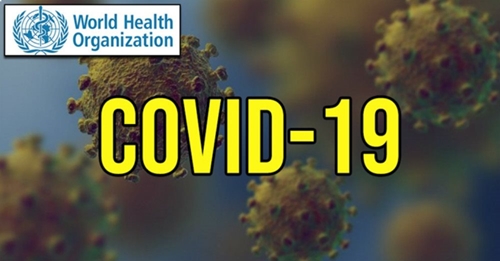Available free of charge, the courses have been developed and opened to the public with the aim of contributing to Viet Nam’s access to the updated information and technically sound capacity-building materials on the said new disease.
“COVID-19 is a new disease and as such, it is critical that the best available information on this is delivered to our colleagues in a timely, convenient and user-friendly manner. We aim to bring the knowledge to the learners, instead of physically moving the learners to where the knowledge is. This strategy is especially important now that we are in the COVID-19 outbreak situation, when physical gathering is discouraged in line with the promotion of the practice of social distancing measures to control virus spread,” said Dr Kidong Park, WHO Representative in Viet Nam.
    |
 |
|
COVID-19 has become a pademic, causing thousands of deaths across the world. |
The 10-hour course, Clinical care severe acute respiratory infection, includes contents on clinical management of patients with severe acute respiratory infection (SARI). It is intended for clinicians working in intensive care units (ICUs) and managing adult and pediatric patients with SARI, including severe pneumonia, acute respiratory distress syndrome (ARDS), sepsis and septic shock. SARI is one of the clinical conditions common among patients with emerging respiratory viral infection, including human infection with avian influenza virus (H5N1, H7N9) and COVID-19.
The other course, Emerging respiratory viruses, including COVID-19: methods for detection, prevention, response and control, has a three-hour phase and is intended for public health professionals, incident managers and experts working in the development sector. This course will be opened to the public late March.
Both courses are accessible in OpenWHO, WHO’s web-based platform that offers online courses to people working on or preparing to work on health emergencies. More COVID-19-related courses in English and other languages are available in the said platform.
The two courses in Vietnamese language are also available in IBSA eLearning for Health, Hai Phong University of Medicine and Pharmacy’s (HPMU) online learning platform. The IBSA eLearning for Health was developed with support from India, Brazil and South Africa, with technical assistance from WHO Viet Nam.
Professor Nguyen Van Hung, Vice Rector of HPMU, takes pride in being able to contribute to the capacity building of frontline health workers fighting against COVID-19 as he remarked, “The IBSA eLearning platform – with the help of the governments of India, Brazil and South Africa, as well as WHO – has succeeded in establishing significant levels of skills and infrastructure within HPMU to develop and deliver effective eLearning as an approach to continuing medical training, and overcoming barriers to training experienced by many remote-site medical settings. We aim to take advantage of this existing platform to contribute in the COVID-19 response. HPMU has been working with WHO in making available online training modules related to addressing this new disease.”
Reported by Tran Loan-Hoang Linh